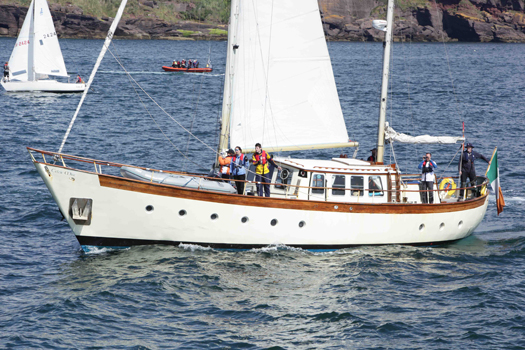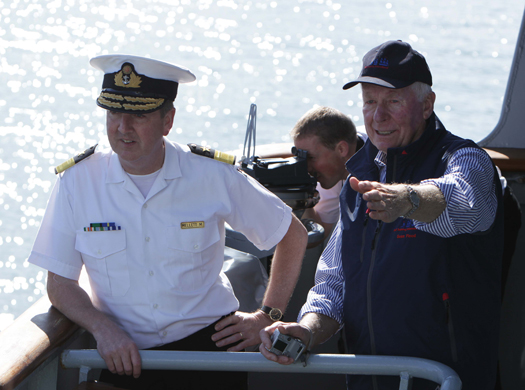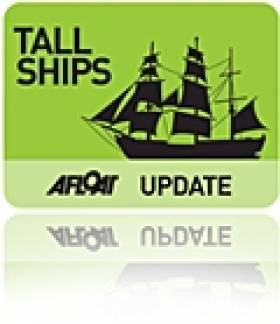Displaying items by tag: Mark Mellet
The Celtic Mist, the new flagship of the Irish Whale and Dolphin Group, was berthed in Waterford city for the Tall Ships weekend writes Shay Fennelly. Gifted to the IWDG in May 2011 by the family of a former Irish Prime Minister, Charles Haughey, who declared Irish waters a whale and dolphin sanctuary in 1991.
Celtic Mist left Waterford on Sunday morning in glorious sunshine on passage down the River Suir for the Tall Ships Parade of Sail off Dunmore East watched by thousands of people from the river bank at Passage east, Duncannon and Dunmore East.

Ireland's only entry in the 2011 Tall Ships race from Waterford to Greenock Irish Whale and Dolphin Groups's research vessel Celtic Mist in the Tall Ships Parade of Sail off Dunmore East in Waterford. Photo: Shay Fennelly/Aquaphoto
The Tall Ships fleet was reviewed by Flag Officer Commanding Naval Service Commodore Mark Mellet and Sean Flood Sail Training Ireland (Board) and a Goodwill Ambassador for Sail Training International past the LE Aoife. Over 1200 young people, many who have never been to sea before, are onboard the 50 tall Ships sailing to Greenock.
On board Celtic Mist are Captain Fiacc Brolchain, Gary Davis, Eithne Griffith, Deirdre Slevin, Conor Ryan and trainees Siobhan Ardener (19) from Killarney, Co Kerry, and Keith Cleere (19) from New Ross, Co Wexford.
The race started slowly at 15.00hrs, five miles south of the Hook Lighthouse in 10 knots of wind and blue skies and headed for the Irish Sea to Scotland.

Flag Officer Commanding Naval Service, Commodore Mark Mellet (left) and Sean Flood Sail Training Ireland (Board) and a Goodwill Ambassador for Sail Training International on board LE Aoife reviewing the Tall Ships fleet as they passed off Dunmore East, County Waterford. Photo: Shay Fennelly/Aquaphoto
























































